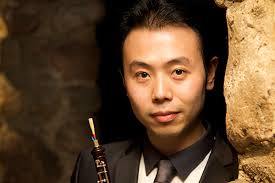English cathedral music faces existential crisis
NewsA report by the Cathedral Music Trust paints a bleak picture of the future of music in Anglican churches.
A lead story in the Church Times finds that in 2019 there were 1500 choristers (770 girls and 730 boys) and 510 lay clerks or choral scholars making music in the 42 C of E cathedrals and Westminster Abbey. That year, 37,300 people weekly attended cathedral services.
However, the Covid shutdown broke the attendance habit and the economic slowdown meant fewer choristers were emerging from fee-paying private schools. Others complain of a lack of ethnic diversity in church choirs.
So some cathedrals are cutting choirs/a>.
Read more here.






Ethnic diversity? Who cares? Just give me good singers.
Good singers of all shades & colours please!
What about Church in Wales and Church of Scotland?
They are in Wales and Scotland.
Very sad, and I know this might be controversial, but I think they should ditch the live streams. That way, if people wanted to attend a cathedral service with quality choral music, they would have to physically go, put the bums on seats, and possibly drop some cash in the plate. It would also send a message to the clergy that choral services ARE supported, and make it harder to justify cuts. Making these things available for free at home was only ever going to result in lost attendance and revenue. I’d be interested to see statistics on how much churches make on their honour system of just asking for a donation for free content. Quality music costs money.
I do appreciate that there are people who are housebound for whatever reason, but that was the case before the pandemic, and there has been weekly broadcasts of choral evensong on Radio 3 for decades which people in that situation could easily access.
“ditch the live streams. That way, if people wanted to attend a cathedral service with quality choral music, they would have to physically go, put the bums on seats.”
Amen
As a lover of the music of the great cathedrals myself, one can see their problem as most Christians today simply do not relate to that type of music when they gather to worship God, which is of course the purpose of our gathering. They (like me) desire modern music which relates to our culture, not music which reflects centuries old tradition. So if we regard worship as a participatory activity rather than a spectator sport we will go somewhere where the worship is relatable to ourselves and our children. We reserve the beauty of the cathedral music for our entertainment and pleasure.
English church music is still very much a living tradition, and includes some outstanding “modern music which relates to our culture” *and* “reflects centuries old tradition”. For some examples of truly great contemporary Anglican liturgical works, I would recommend Jonathan Harvey’s /I Love the Lord/, Ben Comeau’s /Vanity of Vanities/, or just about any liturgical work by Giles Swayne.
Unfortunately that modern music is very much a minority taste among the general public. That is not to say that it is wrong – just that it won’t communicate with most of the public at large.
This whole thing is extremely delicate, but worth unpicking.
Firstly, what is religion if it isn’t centuries old tradition? Now you may disagree, and you are welcome; but to suggest that the tradition is “irrelevant” just because you want modern pop music, despite the fact that cathedrals have been singing for over a thousand years, smacks of not seeing the first for the trees.
And let us not forget that there is a reason that cathedral music is as it is, and isn’t drums and guitars – it’s not JUST that cathedral musicians are old fuddy-duddies; but the reality that guitars and drums and amplified singers and rhythm sections sound rubbish in the massive acoustics of cathedrals; that the syncopations of pop songs are hard to lead and sing together in swampy acoustics, etc etc.
Organs and cathedral choirs are purpose built to lead worship in the way that works best in the space – choir and organ soaring across the space, a body of sound supporting hymn singing; it can’t be too fast by design.
So in essence, cathedrals at the very least OUGHT to have the sort of music they provide, because that’s what works best. Just as cathedral music sounds rubbish in a small, low ceilinged, carpeted conference centre, accompanied by a clavinova piano…
Then we get into the whole debate about excellence vs participation.
One of the “negatives” about cathedral music is that it is, to a degree, exclusionary. I mean – that’s not really true: anyone can come to a service, and anyone can sing as loudly and as badly as they want to all the hymns. Nobody js excluded from participation – even at choral evensong you get to sing a hymn.
But they won’t sing in the choir – because they’re not good enough.
Cathedral choirs by their nature don’t need to be particularly big. You don’t need 120 willing singers to sing this music well – in fact, you won’t sing it well.
You need about 16-24 trebles and 6-12 adult singers, and that just works.
But they need to be good. That’s not just because people are snobs about it. It’s because the demands are enormous.
The choirs function on remarkably little rehearsal – at least for the adult singers, and even for the kids. It’s amazing how much music a cathedral choir will sing in a service without having had more than a cursory glance through it prior to the service.
This is because they sing so much music, across the course of each service each week, that spending hours rehearsing it all is completely impractical.
So the choirs rely on highly skilled singers who come in, know what they are doing, and just get it right.
Those skills don’t come out of nowhere – you need years of experiences sight-reading choral music to be able to do that.
Now the children in the choir are also incredible. They work bloody hard – and they build those extraordinary skills in sight reading music and singing beautifully.
The best are the best because they sing every day. That’s really it – they are so good at what they do because they do it almost literally every day. The training is comparable to elite sports – and the outcome the same.
Take away that framework – the regular singing, the cycle of repertoire, the beautiful acoustic in which to learn to sing etc – and this sort of choral singing will be GONE in no time. And there will be no conceivable way in which it will come back.
So to those who want to cut a few corners here and there, or think the choir is unnecessary, or wants only an adult choir, or wants only volunteers not professionals…
This is the way to nail a coffin lid shut on one of the most extraordinary, unique, and precious things that is so distinctly english. Once it’s gone it’s gone, and you can have your coronation services and state funerals with a CD of Lady Gaga or whoever if you so choose.